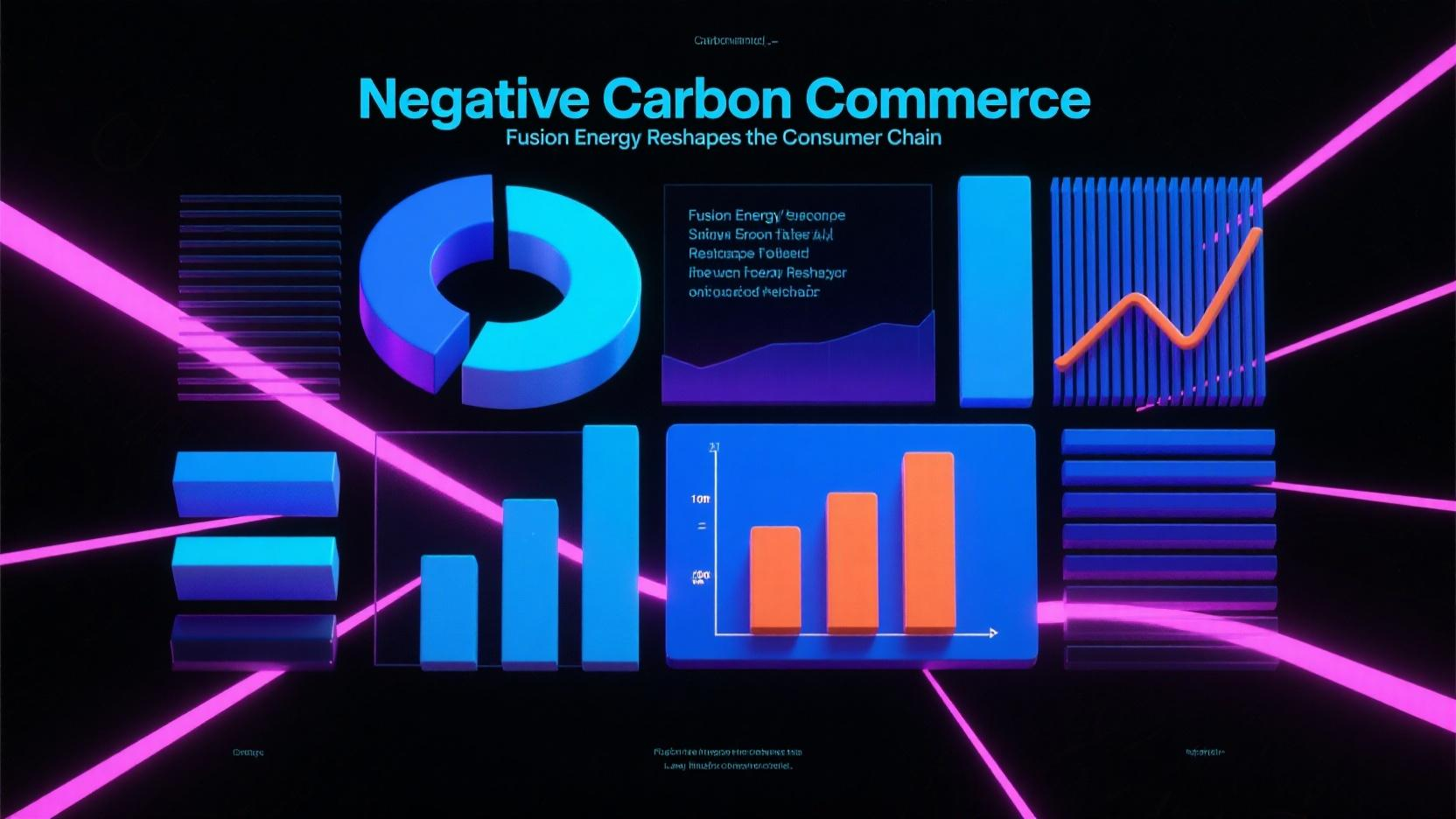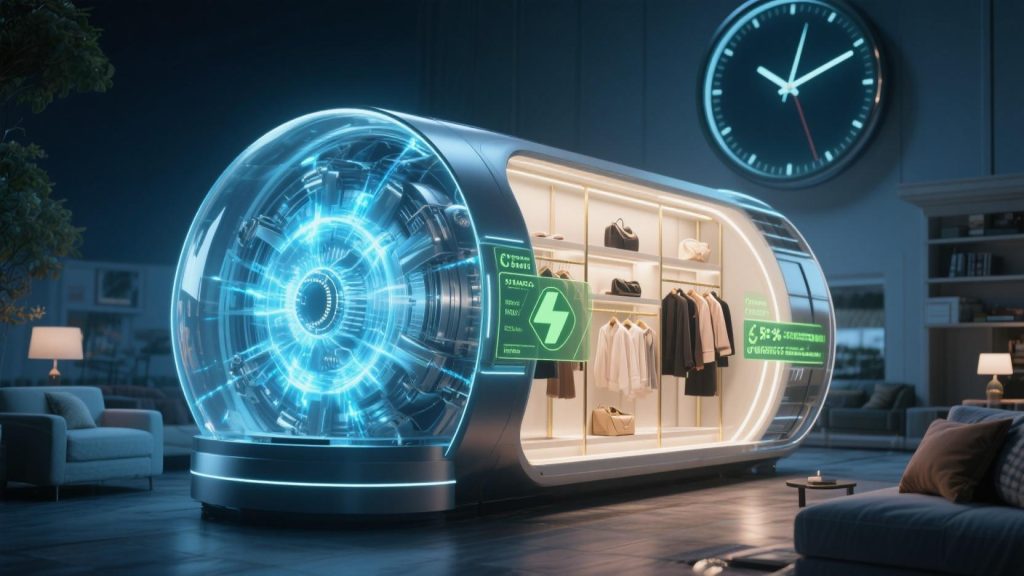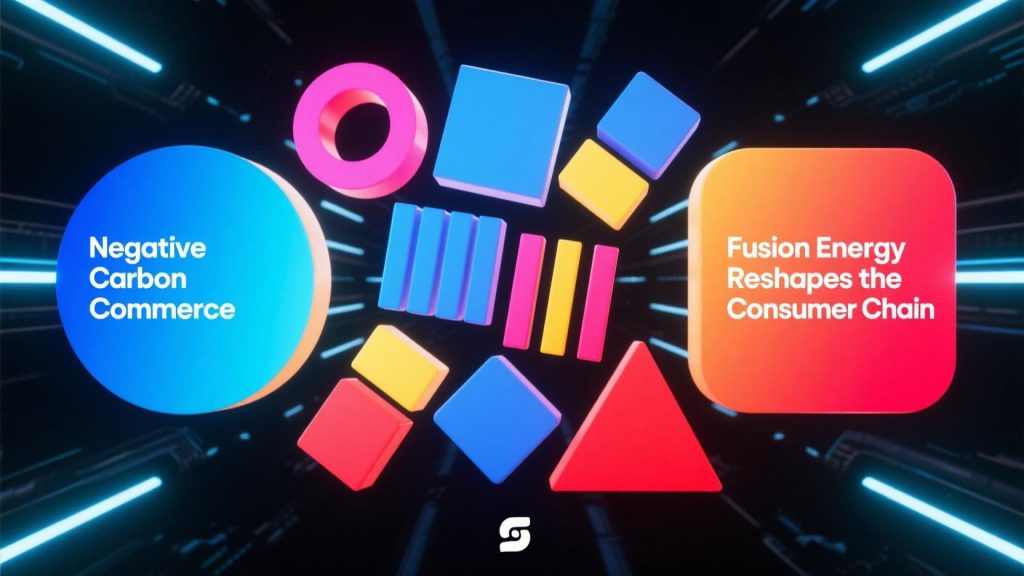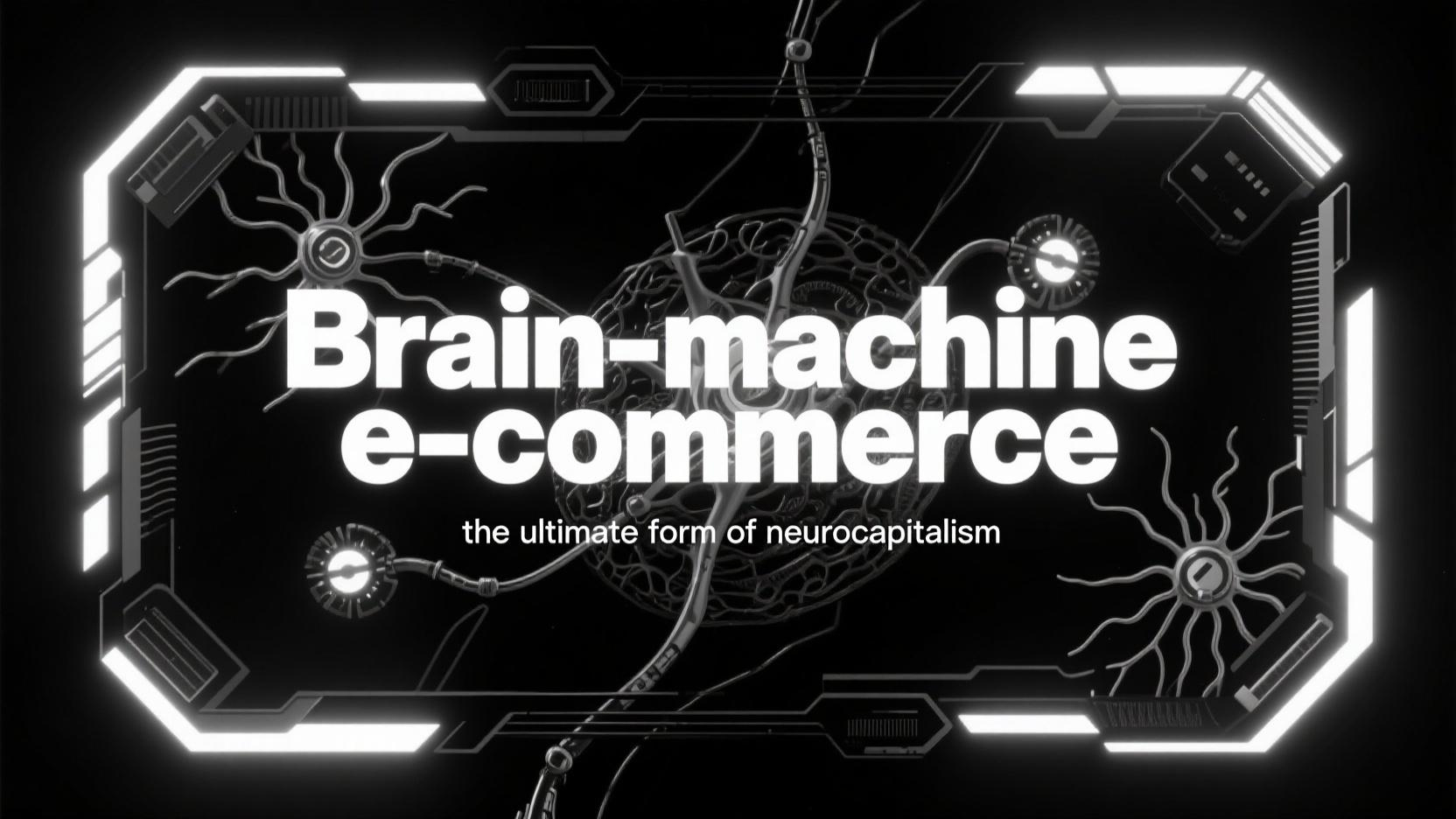
What happens when electricity becomes so cheap, it’s practically free? When your handbag is printed from photons instead of stitched in sweatshops? Welcome to the era of Negative Carbon Commerce—where fusion energy and decentralized manufacturing are revolutionizing not only how we consume, but why.
At the heart of this shift is the Commonwealth Fusion Systems’ compact fusion reactor, now deployed across high-density urban zones and affluent households. These miniaturized reactors generate electricity at just $0.001 per kilowatt-hour, with near-zero marginal cost. The result? A seismic break from fossil-fueled supply chains—and a complete rewrite of the global consumption map.

☢️ Electricity Beyond Price
These household fusion cores don’t just power smart homes—they drive matter printers, advanced photonic and quantum fabrication systems that can locally produce complex goods. The days of container ships and warehouses are fading. With overproduction of clean energy, consumers are encouraged to “spend electricity” rather than cash.
When energy prices dip into negative territory during grid surpluses, systems auto-trigger consumption: walls generate insulation, expired food containers reprint as new ones, and even luxury goods become artifacts of surplus electrons.
👜 LVMH and the Rise of Instant Luxury
Luxury giant LVMH was among the first to harness this trend. In 2026, it launched its Photon Couture line—a fusion of fashion and photonics. Customers upload quantum-encrypted design blueprints, verified via blockchain smart contracts. The file is then decrypted locally and printed at nanoscopic resolution in under three minutes.
The results are stunning: bags, jewelry, and garments indistinguishable from their hand-crafted equivalents—yet produced without global logistics, slave labor, or carbon emissions. The footprint? 1/2000th of a traditional supply chain item.
Even carbon-positive consumption becomes impossible. With AI optimizing designs for minimal entropy and waste, the only byproduct is more demand—for innovation, not pollution.
📉 Welcome to the Negative-Cost Economy
In this new energy-soaked world, price is decoupled from scarcity. A growing share of high-value goods are produced during periods of negative electricity pricing, when consumers are effectively paid to consume—by balancing the grid or monetizing their personal carbon-negative footprint.
Here’s how the loop works:
- Fusion surplus creates excess electricity.
- Consumers’ smart devices auto-print high-efficiency or recyclable goods.
- The production process sequesters more carbon (via algae polymer or DAC integration) than it emits.
- Users receive carbon credit tokens, tradable on luxury NFT platforms, or redeemable for exclusive experiences.

🔁 From Consumerism to Carbon Mining
This isn’t just green—it’s beyond green. It’s luxury as a service to the planet. A handbag is no longer a climate cost, but a climate solution. Every item printed from light and carbon draws us closer to a negative-emission economy, where consumer behavior is aligned with planetary repair.
Yet as fusion energy democratizes access to abundance, a new question arises: When everything can be created instantly and cleanly, what becomes of desire itself?
In the end, negative carbon commerce may not just change how we shop—it may redefine what we value.






